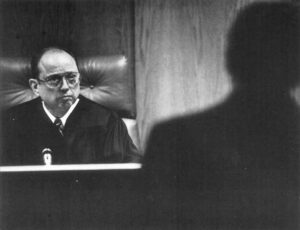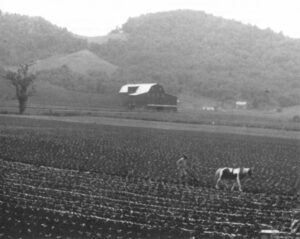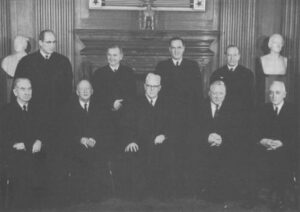
Misery Funds a Legal Fiefdom
Memphis, Tennessee – Bronze dogs guard the neo-classical facade of the Shelby County Juvenile Court. Mahogany desks and softly-lit oil paintings grace the administration offices. It is immaculate, from the gleam of the main lobby floor to the glare off the bullet-proof glass that seals




